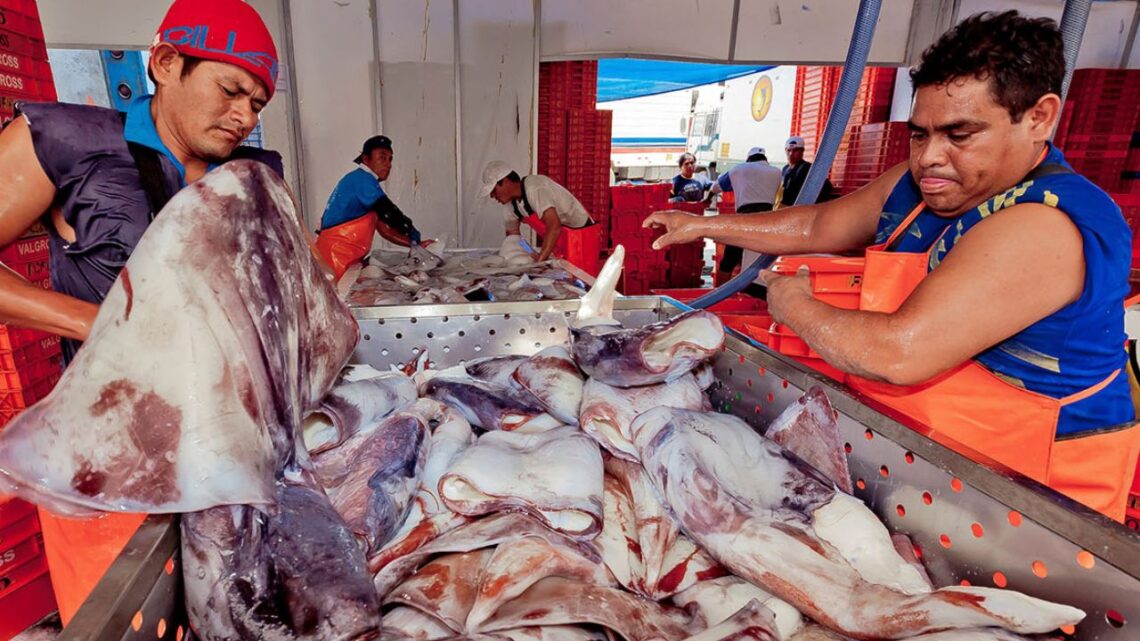In northern Peru, the coastal province of Paita has turned into a center of protests. Thousands of fishermen are blocking roads, burning tires, and demanding changes to new government fishing limits on pota, also known as jumbo squid.
The protests have stopped transportation, closed schools and shops, and left many families struggling. Let’s understand what started this crisis and how it is affecting the region.
Why Are Fishermen Protesting?
The Peruvian Ministry of Production (PRODUCE) recently set new rules to control how much pota can be caught. The goal is to protect the species from overfishing. But fishermen say the limits are too strict and threaten their livelihoods.
In Paita Province, about 90,000 artisanal fishermen depend on pota fishing. They argue that the new catch quota is unfair because it gives them only a small portion of what they used to catch. As a result, they have taken to the streets in large numbers, blocking highways and ports.
What the New Quota Says
The new policy introduces a Total Allowable Catch (TAC) for the jumbo squid. It also limits how much each fishing boat can catch depending on its size. Fishermen say the time period and amount are not enough for them to survive.
Below is a simple look at the quota system:
| Boat Size (Cubic Meters) | Allowed Catch (Metric Tons) |
|---|---|
| Less than 10 m³ | 6 tons |
| 10 to 20 m³ | 8 tons |
| 20 to 32.6 m³ | 12 tons |
The total catch allowed for the entire country is 40,000 metric tons for a short period between 1 and 17 October 2025.
Impact of the Protests
The protests have caused major disruptions across northern Peru.
- Roads and highways leading to Paita and nearby cities are blocked by burning tires and rocks.
- Shops and markets have closed because deliveries cannot arrive.
- Schools and hospitals are shut for safety reasons.
- Transportation of goods, especially seafood exports, has stopped.
These blockades are affecting not just fishermen but everyone in the area. Food and fuel supplies are running low, and local businesses are losing money every day.
What Fishermen Are Demanding
Protest leaders are asking the government to:
- Cancel or modify the quota system.
- Allow them to fish longer and in larger quantities.
- Set fairer rules that do not harm small-scale fishers.
They believe that pota stocks are healthy, and the government’s data is outdated. They say the rules were made without consulting them.
Government’s Response
Officials at PRODUCE say the quota is based on scientific studies showing that pota populations are decreasing due to overfishing and climate change. They argue that short-term restrictions will help the species recover and ensure long-term stability for the fishing industry.
However, fishermen fear that if the government does not change its plan soon, they will lose their main source of income and many will be pushed into poverty.
What Happens Next
Talks between fishermen and government officials are expected to continue. If no deal is reached, protests could spread to other provinces. The government might also send more police to reopen the blocked roads, which could increase tension.
Both sides need to find a balance between protecting nature and protecting people’s jobs.
The protests in Paita Province show how difficult it is to balance environmental protection with economic survival.
While the government wants to save the jumbo squid, fishermen just want to keep feeding their families. The outcome of this conflict will shape the future of Peru’s fishing industry and the lives of thousands of coastal workers.









